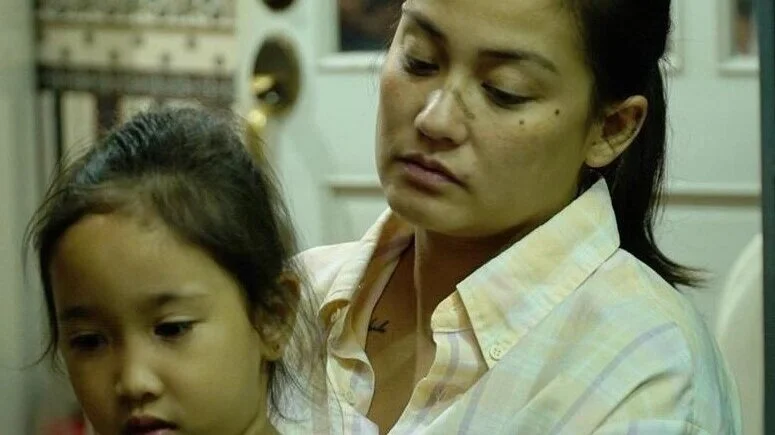Verdict
A powerful debut that is innovative for the extent to which it applies documentary shooting styles to an enacted drama.
Just over seventy years ago the arrival of less cumbersome camera equipment encouraged Hollywood to follow the lead of the Italian neorealist school of filmmaking by taking the cameras out into the streets to give an extra sense of realism to many a fictional drama. Verdict, a remarkable first feature from the Filipino writer/director Raymond Ribay Gutierrez, reminded me of that era, but it takes things much further than before. His aim in making Verdict was to create a fiction that would stand in for a shocking aspect of contemporary life in the Philippines and truly represent it. The issue in question was the difficulty that married women have to assert their rights and protect themselves when they find themselves to be victims of abuse by their husbands. Their plight is aggravated by their living in a society so patriarchal and supportive of men. To show this convincingly Gutierrez, in co-operation with his photographer Joshua A. Reyles and his editor Diego Marx Dobles, adopts a shooting style borrowed directly from the world of today’s documentary cinema. In particular, it echoes the look of those works that capture reality on the hoof, spur of the moment stuff often shot when chaos reigns (think such titles as 2019’s Midnight Family shot on the streets of Mexico City and the recent 76 Days filmed in Wuhan during the early days of the pandemic).
The opening scene of Verdict immediately plunges us into a crisis, one that occurs when 32-year-old Joy Santos (Max Eigenmann) finds herself being violently attacked by her drunken husband, Dante (Kristoffer King). It is not the first time that this has happened, but on this occasion the couple's six-year-old daughter, Angel (Jordhen Suan), is also caught up in the violence and Joy is driven to use a knife to protect herself. So dramatic is this scene that it might have come over as melodrama but, because of the way in which it is shot, the opposite is the case: it plays like real life and we find it wholly understandable that Joy should at once seek help and then file a complaint.
What follows is less hectic as well as less violent, but Gutierrez continues to maintain the tone of documentary realism throughout the rest of the film: the procedures involved include the hearing to decide if there is a case for the courts, the appointment of lawyers, the quest for witnesses willing to testify and the eventual hearings which are themselves long drawn out. Quite understandably, Verdict has been compared with the French drama made by Xavier Legrand in 2016 which was also about an abusive husband, Custody. That fine film, again rooted in realism, nevertheless opted for a climax that risked seeming melodramatic but managed to bring it off. Gutierrez in contrast lets his film play out without any comparable build-up in its second half. In some ways that is more honest, but Verdict is at least half an hour longer than Custody and one does feel that its impact might well have been even greater had it been more succinct in it later stages. But no matter for it is very well acted (especially by Max Eigenmann as Joy) and, in addition to leading to a satisfyingly neat conclusion, the film ends on a note which reminds us that the legal case that we have followed is just one of many. This re-enforces the sense that what Joy Santos has experienced and suffered in this convincing fictional work does indeed reflect countless real life tales.
MANSEL STIMPSON
Cast: Max Eigenmann, Kristoffer King, Jordhen Suan, Rene Durian, Dolly De Lion, Lourdes Javelosa-Indunan, Vincent Aureus, Stephen Humiwat, Jalyn Perez, Liza Schneider, Sidney Schneider.
Dir Raymund Ribay Gutierrez, Pro Brillante Mendoza, Nicolas Brigaud-Robert, Dan Wechsler and Jean-Christophe Simon, Screenplay Raymund Ribay Gutierrez, Ph Joshua A. Reyles, Pro Des Ryan Faustino, Ed Diego Marx Dobles, Music Diwa de Leon, Costumes Ruffa Zulueta.
Bord Cadre Films/Films Boutique/Centerstage Productions/Playtime-Sovereign Film Distribution.
126 mins. Philippines/France. 2019. Rel: 12 March 2021. Available on VOD and on Virtual Cinema release. Cert. 15.


